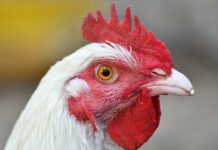“It is a peculiar American complex to want to know what their President eats, how he sleeps, when he gets up, what meats he prefers etc. ad lib. I told ’em I was very fond of elk and buffalo meat. I didn’t elaborate on it by telling them I’d had some fine pork tenderloin in Buffalo, N.Y. and a tip-top steak in Elk Springs, Wyoming.”
– Harry S. Truman
In a letter to a family friend, May 13, 1945
The life and times of Harry S. Truman has always interested me enormously. I have read and re-read many biographical books written on the man, but my favorite is, Off The Record: The private papers of Harry S. Truman, edited by Robert Ferrell.
Perhaps what makes Truman so interesting is that he was the last president to have blazed his own trails. He had no “handlers” – no public relations team, no group of speech writers telling him what to say or what not to say, or worse yet, what to think.
Dwight D. Eisenhower was an independent sort, too, but I think his presidency marks the beginning of the end of straight shooters.
It is also interesting to note that Truman saw himself as a Missouri farm boy who didn’t play city-boy games.
Truman seemed appalled that people wanted to know what his favorite songs were, “and when I say Pilgrims Chorus or Toreador from Carmen or Hinky Dinky Parlez Vous or Dirty Gerty from Bizerte, they are not sure whether I’m on the beam or not.”
Path to presidency. Just one month in to his rise from U.S. vice president to president of the United States after the death of Franklin D. Roosevelt, Truman wrote to a family friend, “It is a very, very hard position to fall into as I did. If there ever was a man who was forced to be President, I’m that man.
“The week at Chicago was the most miserable I ever spent, trying to prevent my own nomination to be vice president. I was afraid of what would happen – and it has. But I must face the music and try to the best of my ability.
“You just keep on praying and hope for the best.”
His own thoughts. Truman obviously thought for himself and didn’t mind spelling it out for anyone.
Once, when the top bishop of the Episcopal church came to visit him in February 1952 to protest the sending of a representative to Vatican City, Truman writes in his diary, “I told the High Bishop Episcopal that I did not give a damn about protocol – that all in the world I wanted to do was to organize the moral forces against the immoral forces.
“I told him that Stalin and his crowd had no intellectual honesty and no moral code, that they had broken 30 or 40 treaties they’d made with us and the free world and that all I wanted to do was to organize Exodus XX, Matthew V, VI and VII to save morals in the world.
“Sorry he couldn’t see anything but the Totalitarian Catholic Church of Rome as anything but a menace to free religion! What a travesty.
“If a Baptist can see what’s toward – why not a high hat Church of England Bishop?”
Treating others. Truman noted in this same diary entry that he’d been raised to believe in treating others as you’d be treated.
“But along comes Marx, Lenin, Trotsky, Stalin to upset morals and intellectual honesty and a lot of ‘crackpots’ want to follow them. The Great Creator of the Universe won’t allow it! I am sure of that.”
Memoirs. What strikes me as interesting while reading through this book is that it is quite obvious Truman wasn’t collecting his “memoirs” as he went along in hopes of cashing in for millions of dollars with a publication someday.
He was frank, direct, true to himself as he unloaded his thoughts and frustrations at the end of the day. There was no talking around in circles, no polished, pretty words attempting to keep everyone happy.
What a rare breath of fresh air!












